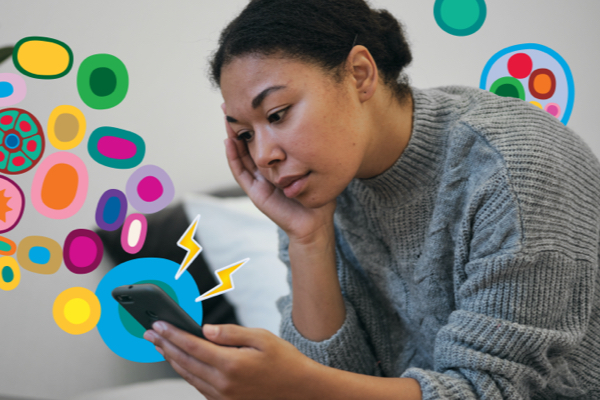What to expect after being diagnosed with a mental illness

If you’ve recently been diagnosed with a mental illness, you might be feeling overwhelmed, anxious or even relieved to finally have a name for what you’ve been experiencing. These feelings are completely normal. There’s no ‘right’ way to feel.
Here’s what you can expect next — and what you can do to take care of yourself along the way.
You’re not alone
Mental illness is common. Around 1 in 5 people in Australia experience mental ill health every year. This can include anxiety, depression, bipolar disorder, and others. Some people experience symptoms for a short time, while others live with a mental illness over the long term. No matter your situation, you’re not alone, and support is available.
What does getting a diagnosis mean?
A mental health diagnosis is simply a way for health professionals to understand a set of symptoms and recommend the most effective treatment. It helps guide your next steps, such as connecting with support services or, in some cases, considering therapy or medication.
It’s important to understand that a diagnosis doesn’t define you. You are still the same person you were before. In fact, many people find getting a diagnosis to be empowering, as it enables them to understand their experience.
Often, a diagnosis is the first step towards getting the support you need to feel healthier and happier.
Your mental health care team
Your GP is often the first person involved in your care for mental health. They may develop a mental health treatment plan with you, which outlines your goals and treatment options. This might include referrals to a psychologist, social worker, or psychiatrist, depending on your situation.
You can talk to your GP about what kind of support you feel most comfortable with. Some people start with counselling, while others might try group therapy, peer support, lifestyle changes, or a mix of approaches.
What to expect from treatment
It’s normal to have questions, or even doubts, at first. Treatment for mental ill health isn’t one-size-fits-all, and it can take time to find what works for you.
Some common treatment options include:
- Talking therapy, such as cognitive behavioural therapy (CBT), which helps you understand patterns in your thoughts and behaviours
- Medication, if your GP or psychiatrist believes it could help manage symptoms
- Lifestyle changes, like improving sleep, diet and exercise
- Community support, such as peer support groups.
Keep in mind that it might take a few sessions to feel comfortable with a new therapist or approach. That’s okay. Let your health professional know how you’re feeling so they can adjust your treatment plan if needed.
Taking time out
You may like to make some temporary adjustments in different areas of your life while you process your diagnosis. Mental health is part of your overall health, and sometimes it helps to slow down, ask for support or take time off if needed.
If you’re working, you might be eligible for workplace support through your employer. If you’re studying, your school or university might have wellbeing services available for you to connect in with. These support options are there for situations just like this.

Taking care of yourself
While you work with professionals on your treatment plan, there are a few practical things you can do to support your wellbeing day-to-day.
Talk to someone you trust: Getting a diagnosis of any kind can feel overwhelming, and there’s no need for you to go through it by yourself. You might like to talk to a friend or family member about what you’re experiencing – someone you trust and feel comfortable talking with openly.
Stick to a routine: It’s normal to feel up and down – especially if you’re adjusting to a new diagnosis or treatment plan. Regular meals, sleep and exercise can help stabilise your mood.
Be kind to yourself: Processing a new diagnosis can take time, and there’s no ‘right’ way to feel. Don’t expect too much from yourself too soon, and remember that support is always available for you if you need it.
Where to get help
If your life or someone else’s is in danger, call 000 immediately.
If you’re in distress and need help, call Lifeline on 13 11 14 for 24/7 crisis support.
For non-emergency support, your GP or regular health practitioner is often the best place to start. They will be able to assess your individual situation and recommend the best next steps for your recovery.
Remember that help is always available, no matter the situation.
How can we help?
I want to know how my cover supports mental health
I need help and want to talk
Related articles
Things you need to know
While we hope you find this information helpful, please note that it is general in nature. It is not health advice, and is not tailored to meet your individual health needs. You should always consult a trusted health professional before making decisions about your health care. While we have prepared the information carefully, we can’t guarantee that it is accurate, complete or up-to-date. And while we may mention goods or services provided by others, we aren’t specifically endorsing them and can’t accept responsibility for them. For these reasons we are unable to accept responsibility for any loss that may be sustained from acting on this information (subject to applicable consumer guarantees).


